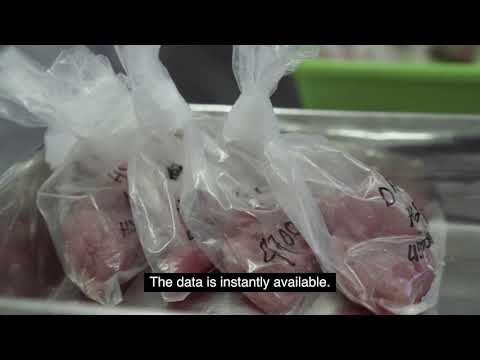Of the 9.1 billion tons of plastic waste accumulated in the world, just nine percent has been recycled and 12 percent has been incinerated. Undaunted by the challenge, leading businesses, government agencies, and concerned citizens are coming together to stem a literal wave of plastic pollution in our oceans, landfills, and general environment.
In this video interview with Hailey Temple from User Experience for SAP Design onsite at SAP TechEd, I watched a roomful of creative developers brainstorm ideas to end plastic pollution with the Intelligent Enterprise.
This gathering was the tip of a much larger sustainability initiative from SAP using data from across the supply chain to reduce and eliminate plastic waste. Called the “Plastics Cloud,” it’s already brought leading public and private organizations together with consumers to explore solutions.
“The data exists to solve the problem of plastic waste, but it’s trapped behind company firewalls,” said Stephen Jamieson, head of SAP Leonardo in the UK and Ireland. “Through informed partnerships with everyone impacted by this problem, we can use SAP Leonardo technology, including machine learning, to share real-time data that will address responsible consumption and sustainable goals while retaining trust and privacy compliance.”
Circular Economy Between Business, Consumers
SAP touches 77 percent of the world’s supply chain, so it made perfect sense for the company to join the UK Plastics Pact, which is managed by WRAP UK, a non-profit committed to create a more sustainable world.
“Keeping materials like plastics in a circular economy does the least amount of damage to the environment,” said Peter Maddox, director of WRAP UK. “In a world where resources are increasingly scarce and the population is growing, we need a circular economy to sustain the health of the planet.”
Actionable Data for Trusted Economy
Tracking plastics across the economy to achieve 100 percent recycling goals is a monumental task that’s entirely doable with advanced technology. Maddox should know because reporting on the sustainability progress of its member organizations is a major part of the ambitious WRAP UK mission.
“We envision a future where it’s possible to see where manufacturers are shipping plastic worldwide, when it’s purchased and by whom, where it’s collected at end of life, and if and how it’s recycled or reused,” said Maddox. “We are excited to work with SAP to see if we can access this data so our members can use it quickly to track and transform their sustainability performance. There’s a huge amount of enthusiasm and desire to come together and solve the systemic plastics problem.”
Everyone Wants Sustainability to Work
Among the findings from recent Design Thinking workshops with SAP experts, UK Plastics Pact member businesses, and consumers, is that people aren’t just interested in recycling plastics. They’re pondering larger questions like what’s in these plastic bottles, and how can we make plastic more reusable in different ways? Ideas under discussion include consumer education at the point of purchase. Point your smartphone app at the packaging of the box you just unpacked at home, or the product you picked up on the supermarket shelf, and it instantly tells you where to dispose of it at nearby locations.
“Plastic packaging plays an important role ensuring the goods people receive are delivered safely and securely,” said Maddox. “This partnership is a fantastic alignment between businesses, people who are buying their products, and governments.”
The World is Watching
Although the UK Plastics Pact is focused on reducing plastic waste within the UK packaging sector by 2025, Maddox emphasized the global impact. He said the WRAP is talking with other countries about its progress, and he hopes to replicate this sustainability model elsewhere.
“Businesses need to use the right polymers, making packaging easily recyclable and reusable,” said Maddox. “When consumers finish drinking from a plastic bottle, it should be recycled into high-quality materials that can go back into the economy. This creates jobs and drives innovation.”
Follow me: @smgaler






